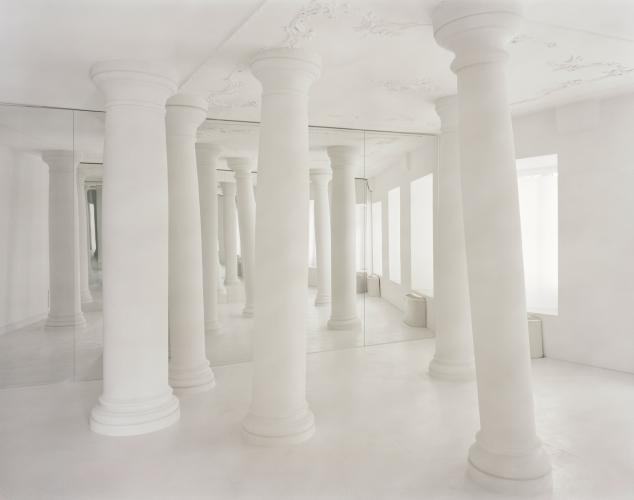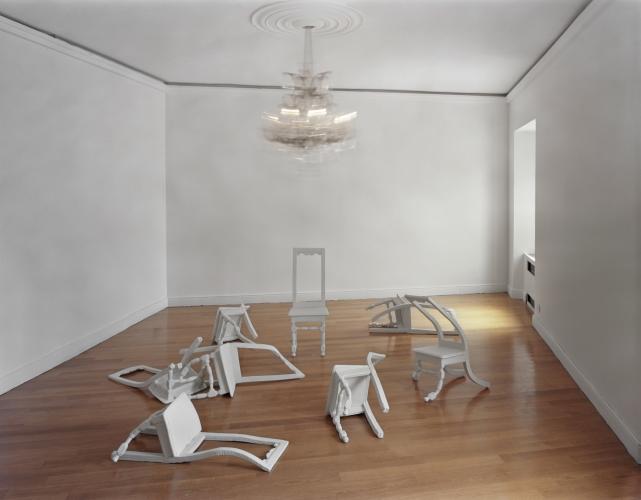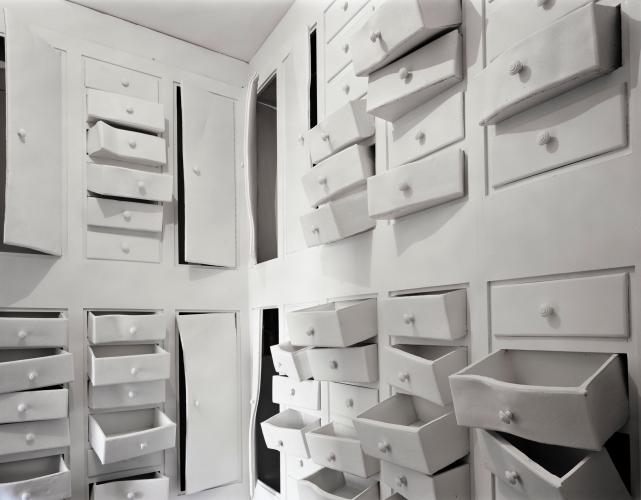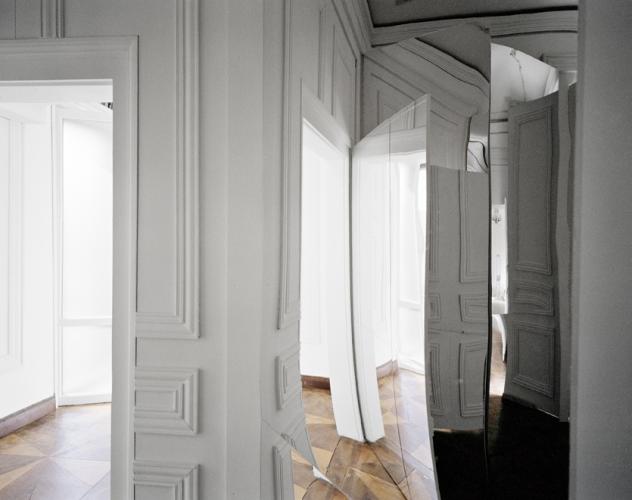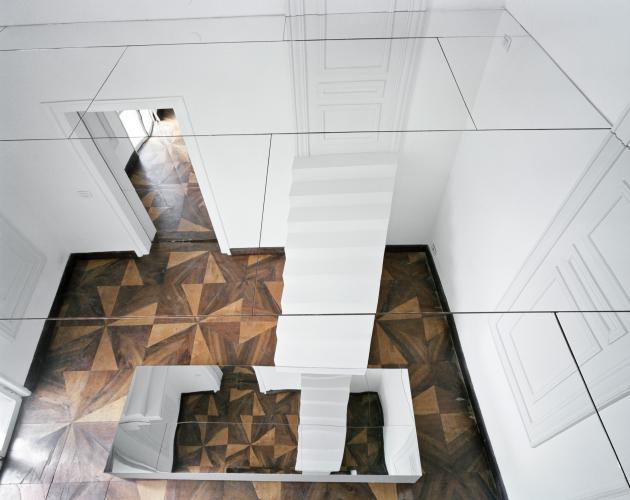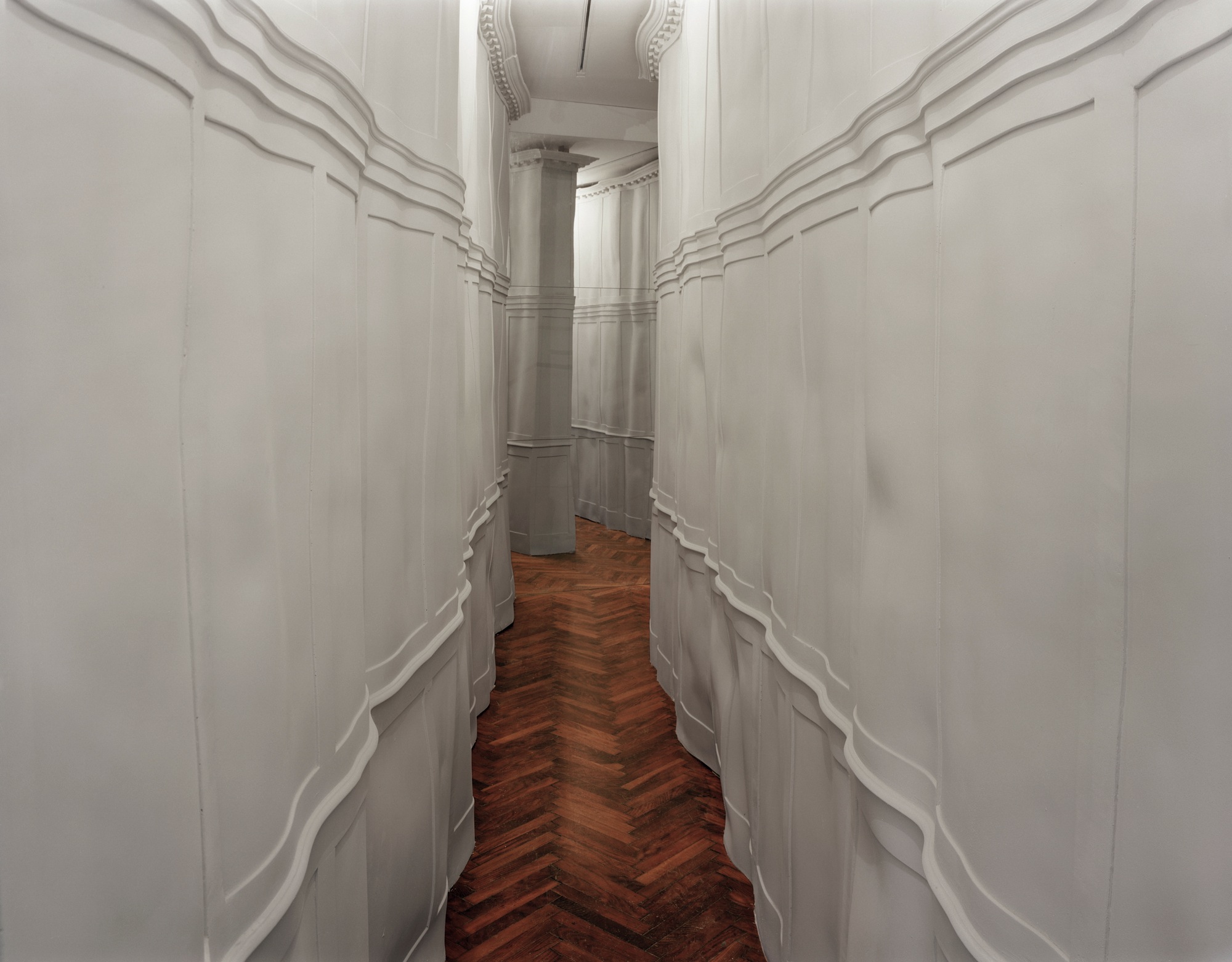
Le Cercle Fermé
Martine Feipel & Jean Bechameil have been selected to represent Luxembourg at the 54th International Art Exhibition - la Biennale di Venezia which will run from 4 June - 27 November 2011.
Born in 1975 in Luxembourg (L), Martine Feipel studied visual art at Marc Bloch University in Strasbourg (F), the University of Arts in Berlin (D), under the direction of professor Christiane Möbus, and at Central St. Martins College of Art & Design in London (GB), where she obtained a Master's degree in Fine Arts in 2002. Since 2000, she has regularly participated in exhibitions, particularly in Europe. She has been awarded several artists' residence grants in Europe. She is a founding member of the Pandora company. In 2007, she initiated the heteroclite project The Game of Life presented in Belgium, Germany and Luxembourg. The same year, she was selected for the Prix d'Art Robert Schuman.Born in 1964 in Paris (F), Jean Bechameil has worked since 1990 as an independent sculptor. He lived in Copenhagen for about twelve years where he regularly participated in exhibitions. At the same time, he worked on numerous sets for plays and films. He first began working in Paris where he helped produce the decor for Madame Bovary by Claude Chabrol (1991). He then participated in set design all over Europe. Among other things, he designed the decor for Antichrist (2009), Manderlay (2002), Dogville (2000) and Dancer in the Dark (1998) by Lars van Trier. Since 2008, Jean Bechameil has been based in Luxembourg where he works in collaboration with Martine Feipel. In 2009 they participated in the Kunst & Zwalm Biennale (B) with a collaborative artwork, and in 2010 they presented an exhibition of their work at the Centre d'Art Nei Liicht in Dudelange (L).Martine Feipel & Jean Bechameil mainly produce installations that react to the context in which they are presented. From drawings and sculptures that serve as models, the couple tries to create spaces; by crossing and fragmenting volumes, they recreate a dislocated, rickety universe that is, a priori, completely illogical.Le Cercle Ferméby René Kockelkorn, commissionerAnybody interested in the work of Martine Feipel & Jean Bechameil soon realises that the notion of space is central to it. This is also the case in the artwork presented for the 2011 Venice Biennale. The observer is presented with a single idea: the obvious necessity of finding a new type of space.At the root of their work is an awareness that sensorial perception has physiological limits - and that our conception of space is historically dated. Henceforth, in the wake of the philosophy of Jacques Derrida, it is a case of trying to go beyond the limit of a place to find a new one. This comes down to thinking about the meaning of the limit and the meaning of space which is mainly the result of tradition. The important thing is not to overstep or transgress the law by crossing the limit but to ''open'' a space at the very heart of the former space. This opening does not create new space to occupy, but rather a sort of pocket hidden inside the old meaning of the limit. It is about an opening in space according to the principle of slippage. This internal slippage and the recreation of space always implies the destruction of an institution. The meaning of the word "space" is profoundly destabilised. In this, our two artists are very topical because the management of space is in crisis. This space we think of as living space is simultaneously a space of action, orientation and communication. The development of science and technology, the erosion of particular visions of the world and traditional value systems, the structural crisis of the economy and the exacerbation of the issue of logic question a traditional conception of space and management that only thinks in terms of fields of competence and is obsessed with the constraints of growth and valorisation. We live in a period of mutation in which past models of orientation and action no longer work.Certainly, the situation still seems open, but we lack concepts of action capable of responding to the ecological crisis and the crisis of civilisation we are currently experiencing without endangering democracy, human rights and the physical necessities of life. Today, there is no doubt that it is more urgent than ever to consider any reflection on the question of space as a work of civilisation, as a remodelling of civilisation. Modifying the everyday completely remodels our world, and that is what this is all about.The artwork can be understood on various different levels that touch as much on philosophy as on art history or society.
Partners
The official representation of Luxembourg at the Venice Biennale - 54th international art exhibition is financed by the Ministry of Culture, Luxembourg. The coordination of the project is under the auspices of the Casino Luxembourg - Forum d'art contemporain. With the support of: Fondation Indépendance, Focuna - Fonds culturel national, Sedlo Jimenez Law Firm Luxembourg, Hoffmann Frères, Peintures Robin S.A.

